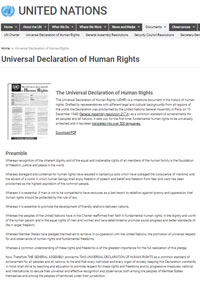
The Universal Declaration of Human Rights (UDHR) is a core document on human rights. The Declaration was decreed by the United Nations General Assembly in Paris on the 10th of December 1948.
For more information please
visit the site
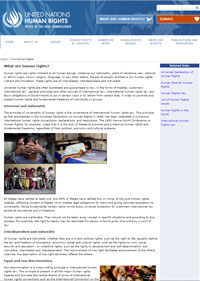
The Office of the United Nations High Commissioner for Human Rights (OHCHR) was created to promote and protect Human Rights. OHCHR provides a forum for identifying, highlighting and developing responses to today’s human rights challenges, and acts as the principal focal point of human rights research, education, public information, and advocacy activities in the United Nations system.
For more information please
visit the site
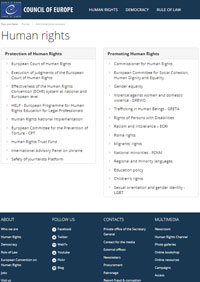
Respect of the European Convention for the Protection of Human Rights and Fundamental Freedoms and, in particular, the judgement of the European Court of Human Rights, is a crucial element of the Council of Europe’s system for the protection of human rights, rule of law and democracy and, hence, for democratic stability in European states.
Also see European Court of Human Rights Database
For more information please
visit the site
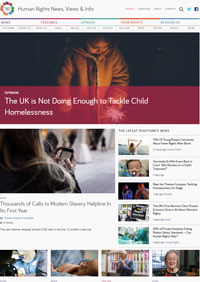
Rights Info is a website focused on bringing human rights to life using infographics, stories and social media. Rights Info is about using social media to find new ways to talk about and deliver human rights stories and information. Rights Info contributes to raising awareness about why human rights matter and how they can change people’s lives.
For more information please
visit the site
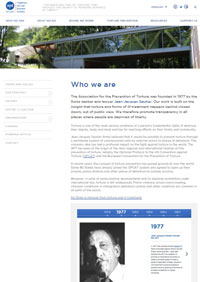
The Association for the Prevention of Torture (APT) works for a torture-free world, where the rights and dignity of all persons deprived of liberty are respected. APT’s mission is to lead and support endeavours to prevent torture and ill-treatment. APT focuses on:
- Strengthening legal and policy frameworks so that torture and other forms of ill-treatment are criminalised and safeguards are in place.
- Improving detention practices to reduce the risk of torture and ill-treatment in police custody and increase protection of all detained persons, particularly those in specific situations of vulnerability.
- Strengthening public oversight, through increased transparency in places of detention and a strong and effective OPCAT system.
For more information please
visit the site
.jpg)
ODIHR is tasked with assisting OSCE-participating States to ensure full respect for human rights and fundamental freedoms; to abide by the rule of law; to promote principles of democracy; to build, strengthen, and protect democratic institutions; and to promote tolerance throughout their societies. The Office also plays an important role in enhancing dialogue among States, governments, and civil society. The ODIHR organizes the yearly OSCE Human Dimension Implementation Meeting, three supplementary meetings and a seminar, which review governments’ progress and give NGOs a platform to freely voice their concerns.
For more information please
visit the site
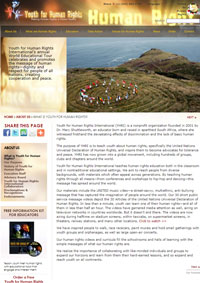
Youth for Human Rights International (YHRI) is a non-profit organization founded in 2001 by Dr. Mary Shuttleworth, an educator born and raised in apartheid South Africa. The purpose of YHRI is to teach youth about human rights, specifically the United Nations Universal Declaration of Human Rights, and inspire them to become advocates for tolerance and peace.
For more information please
visit the site
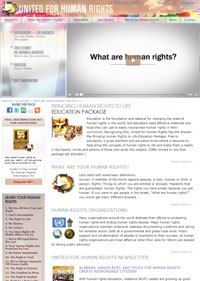
United for Human Rights (UHR) is an international, not-for-profit organization dedicated to implementing the Universal Declaration of Human Rights at the local, regional, national, and international levels. UHR’s membership is comprised of individuals, educators, and groups throughout the world who are actively forwarding the knowledge and protection of human rights. Its purpose is to provide human rights educational resources and activities that inform, assist, and unite individuals, educators, organisations, and governmental bodies in the dissemination and adoption of the Universal Declaration of Human Rights at every level of society.
For more information please
visit the site
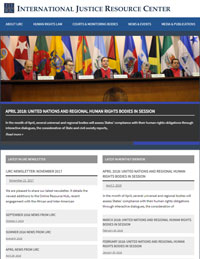
The International Justice Resource Center (IJRC) provides advocates, civil society organizations, and victims of human rights abuses with the information and resources they need to effectively use international legal protections, including advocacy before human rights monitoring bodies and complaints before international and domestic courts, to bring about justice and accountability for human rights violations. IJRC provides educational materials, training workshops, and advice to individuals and groups around the world.
For more information please
visit the site
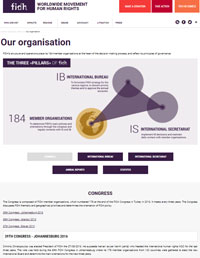
FIDH is an international human rights NGO federating 178 organizations from 120 countries. Since 1922, FIDH has been defending all civil, political, economic, social, and cultural rights as set out in the Universal Declaration of Human Rights. FIDH acts at national, regional, and international levels in support of its member and partner organisations to address human rights abuses and consolidate democratic processes. FIDH’s work is directed at States and those in power, such as armed opposition groups and multinational corporations. FIDH’s primary beneficiaries are national human rights organisations who are members of FIDH and, through them, the victims of human rights violations. FIDH also cooperates with other local partner organisations and actors of change.
For more information please
visit the site
Page 1 of 7



